101 Insightful Quotes By Richard Feynman For The Experimenters

There were several possible solutions of the difficulty of classical electrodynamics, any one of which might serve as a good starting point to the solution of the difficulties of quantum electrodynamics.
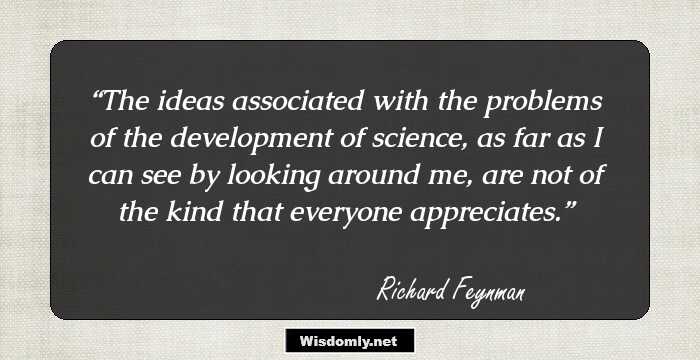
The ideas associated with the problems of the development of science, as far as I can see by looking around me, are not of the kind that everyone appreciates.
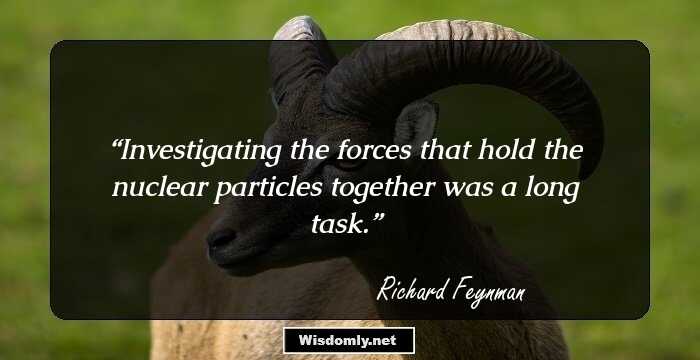
Investigating the forces that hold the nuclear particles together was a long task.

I don't understand what it's all about or what's worth what, but if the people in the Swedish Academy decide that x, y or z wins the Nobel Prize, then so be it.

We seem gradually to be groping toward an understanding of the world of subatomic particles, but we really do not know how far we have yet to go in this task.
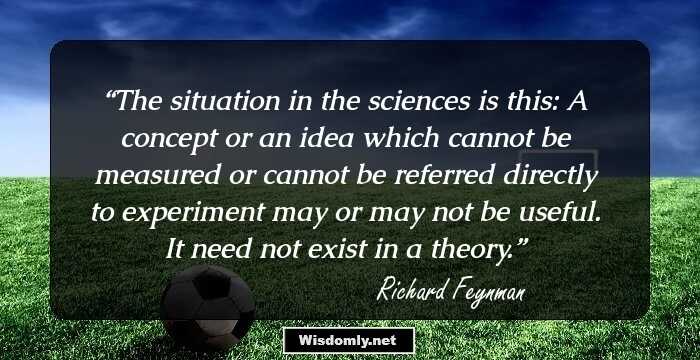
The situation in the sciences is this: A concept or an idea which cannot be measured or cannot be referred directly to experiment may or may not be useful. It need not exist in a theory.
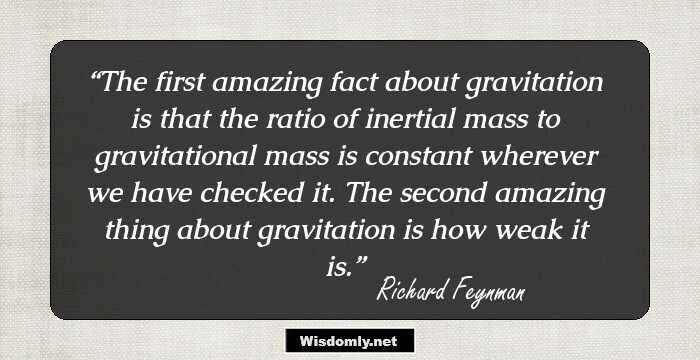
The first amazing fact about gravitation is that the ratio of inertial mass to gravitational mass is constant wherever we have checked it. The second amazing thing about gravitation is how weak it is.

Quarks came in a number of varieties - in fact, at first, only three were needed to explain all the hundreds of particles and the different kinds of quarks - they are called u-type, d-type, s-type.

When I would hear the rabbi tell about some miracle such as a bush whose leaves were shaking but there wasn't any wind, I would try to fit the miracle into the real world and explain it in terms of natural phenomena.
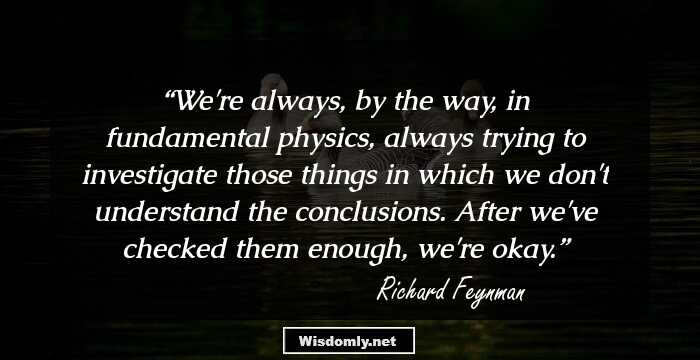
We're always, by the way, in fundamental physics, always trying to investigate those things in which we don't understand the conclusions. After we've checked them enough, we're okay.
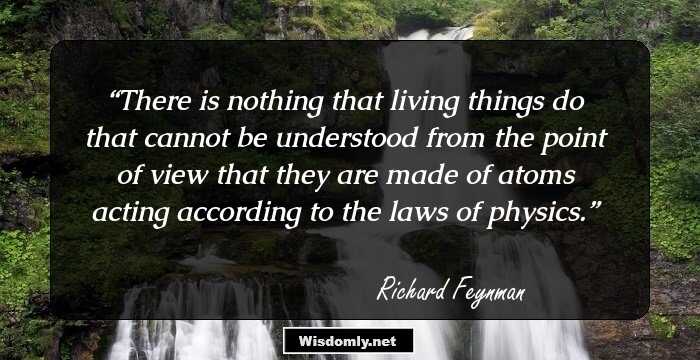
There is nothing that living things do that cannot be understood from the point of view that they are made of atoms acting according to the laws of physics.
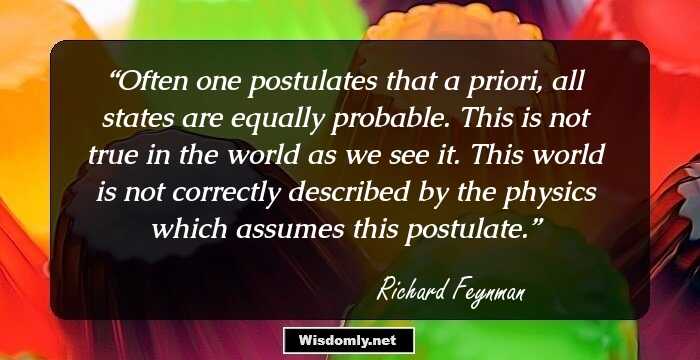
Often one postulates that a priori, all states are equally probable. This is not true in the world as we see it. This world is not correctly described by the physics which assumes this postulate.

In any decision for action, when you have to make up your mind what to do, there is always a 'should' involved, and this cannot be worked out from, 'If I do this, what will happen?' alone.

Before I was born, my father told my mother, 'If it's a boy, he's going to be a scientist.'
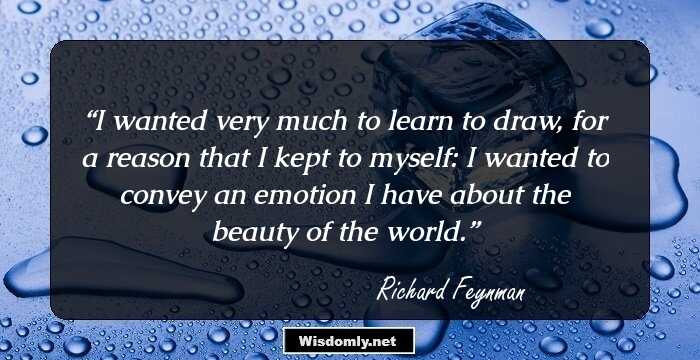
I wanted very much to learn to draw, for a reason that I kept to myself: I wanted to convey an emotion I have about the beauty of the world.
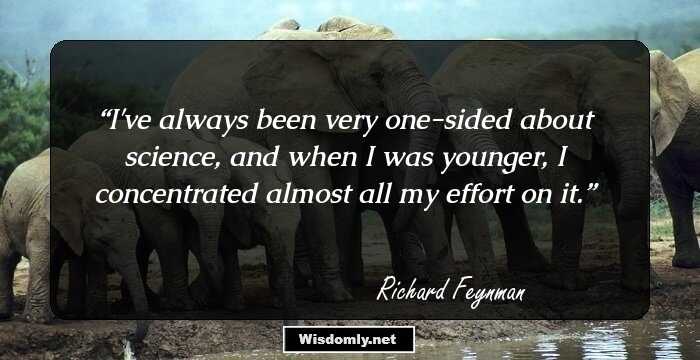
I've always been very one-sided about science, and when I was younger, I concentrated almost all my effort on it.

I got a signed document from Bullock's saying that they had such-and-such drawings on consignment. Of course, nobody bought any of them, but otherwise, I was a big success: I had my drawings on sale at Bullock's!
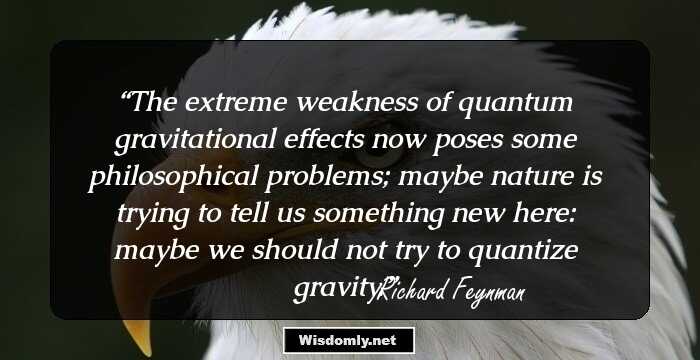
The extreme weakness of quantum gravitational effects now poses some philosophical problems; maybe nature is trying to tell us something new here: maybe we should not try to quantize gravity.
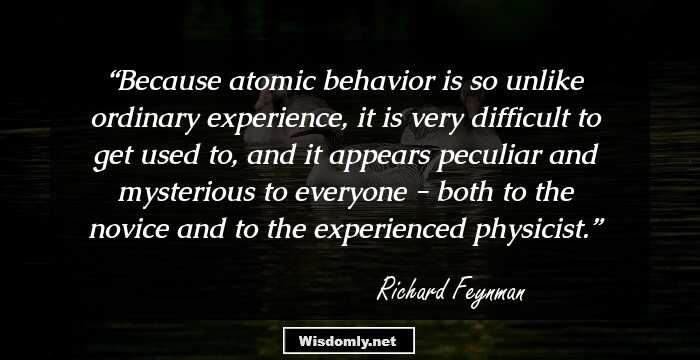
Because atomic behavior is so unlike ordinary experience, it is very difficult to get used to, and it appears peculiar and mysterious to everyone - both to the novice and to the experienced physicist.
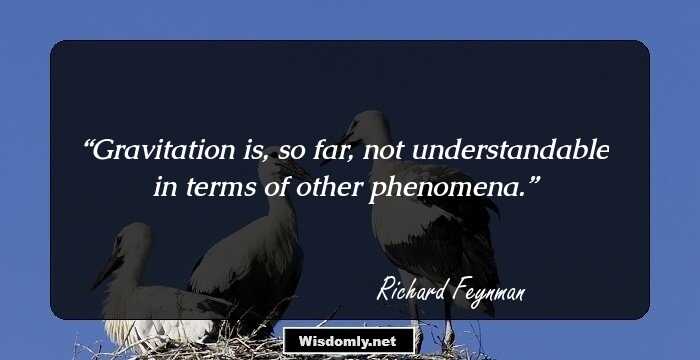
Gravitation is, so far, not understandable in terms of other phenomena.

The universe is very large, and its boundaries are not known very well, but it is still possible to define some kind of a radius to be associated with it.
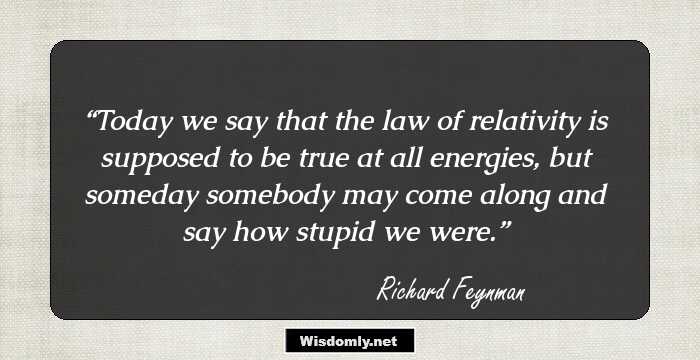
Today we say that the law of relativity is supposed to be true at all energies, but someday somebody may come along and say how stupid we were.

In talking about the impact of ideas in one field on ideas in another field, one is always apt to make a fool of oneself.

There is always another way to say the same thing that doesn't look at all like the way you said it before. I don't know what the reason for this is. I think it is somehow a representation of the simplicity of nature.
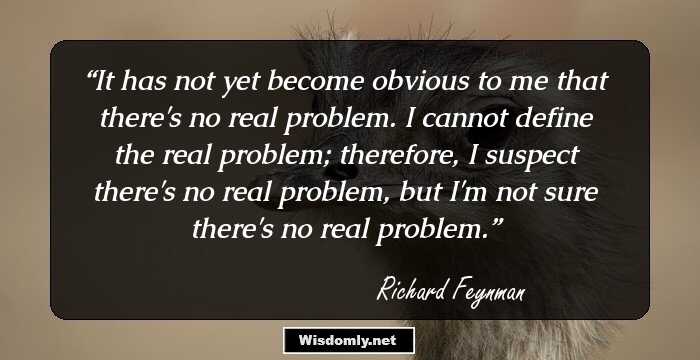
It has not yet become obvious to me that there's no real problem. I cannot define the real problem; therefore, I suspect there's no real problem, but I'm not sure there's no real problem.

People often think I'm a faker, but I'm usually honest, in a certain way - in such a way that often nobody believes me!

I thought one should have the attitude of 'What do you care what other people think!'
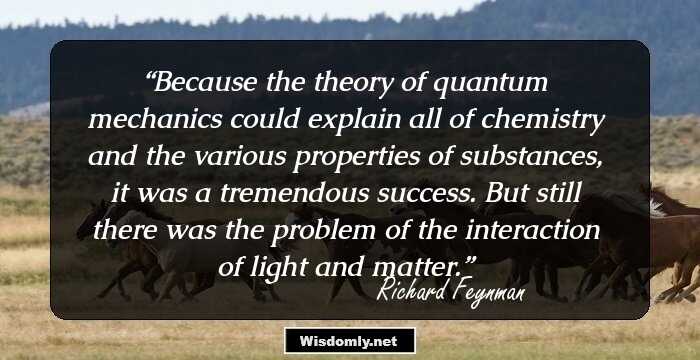
Because the theory of quantum mechanics could explain all of chemistry and the various properties of substances, it was a tremendous success. But still there was the problem of the interaction of light and matter.

I got a fancy reputation. During high school, every puzzle that was known to man must have come to me. Every damn, crazy conundrum that people had invented, I knew.

Once I get on a puzzle, I can't get off.










